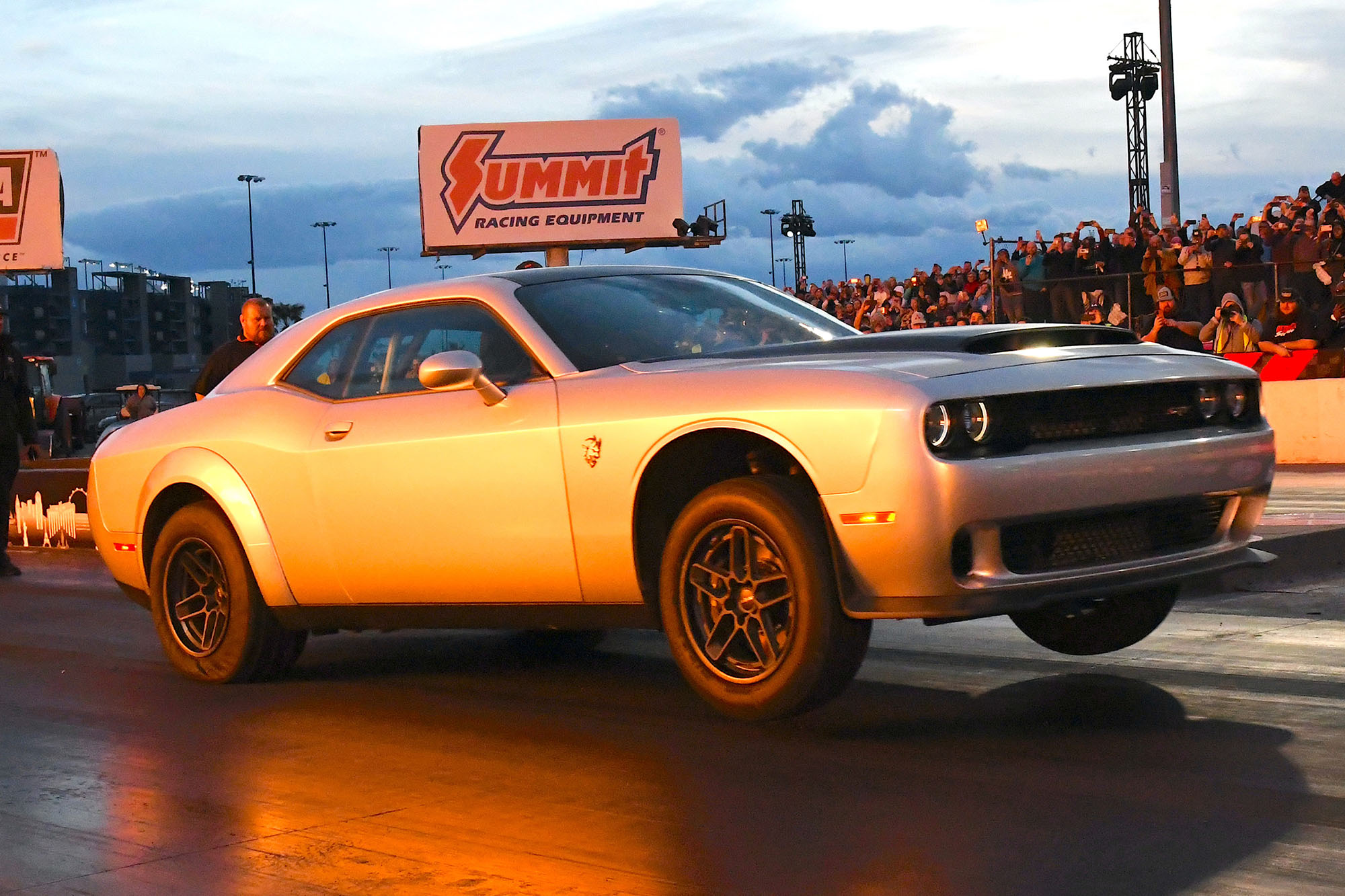Is It Illegal to Use Launch Control on Public Roads?
Save that flashy, fast-start feature for a racetrack. It can get you in trouble with the police if used on a public street or highway.
 Dodge
Dodge
While it was once the territory of supercars, many mainstream automobiles, including the Dodge Challenger, Ford Mustang, and Volkswagen GTI, now include launch control. As the name implies, this technology is designed to allow for fast off-the-line starts.
But as the Spider-Man movies have reminded us: With great power comes great responsibility. It's important to know when launch control is safe to use, or drivers could face serious legal consequences.
How Launch Control Works
Launch control is a coordinated system of braking, throttle, and traction-control tweaks designed to produce the fastest possible starts from a standstill.
Activating a vehicle's launch-control function will allow you to safely raise your engine's rpm to the point where it's producing peak torque with brakes held until the last second.
It will also temporarily engage traction control to avoid wheel slippage, allowing maximum power for speedy takeoffs.
Launch Control Is for Closed-Course Use
While launch control has become something of a bragging right in even daily driver-styled automobiles, it presents a classic American legal conundrum.
There's nothing illegal about having this feature in your car or even driving with the systems ready to activate. However, engaging launch control on a public road, at an intersection, or on a freeway on-ramp can quickly get you into trouble with law enforcement.
In many places in the United States, rapid acceleration falls under the category of an "exhibition of speed." Being cited for exhibition of speed can mean fines, points on your license, or even the suspension of your driving privileges.
Ways to Safely Experience Launch Control
Some drag racing facilities now have special events for drivers of street-legal vehicles to exercise their thrust under supervised conditions.
Before bringing your car to such an event, check your owner's manual to ensure you won't void the warranty by using launch control in a competitive event. It's also important to remember that your automobile insurance might not provide coverage for race-related incidents.
Written by humans.
Edited by humans.
 Andy Stonehouse
Andy StonehouseAndy Stonehouse literally fell into the world of auto writing while working as a ski-town journalist, and has not looked back since. A childhood spent dealing with the eccentricities of a 1976 MG Midget has made any subsequent auto experience a more safe and reliable drive. He has been blessed with nearby mountain trails and snowy roads in Colorado to do TV-adventure-styled test drives on a weekly basis.
Related articles
View more related articles